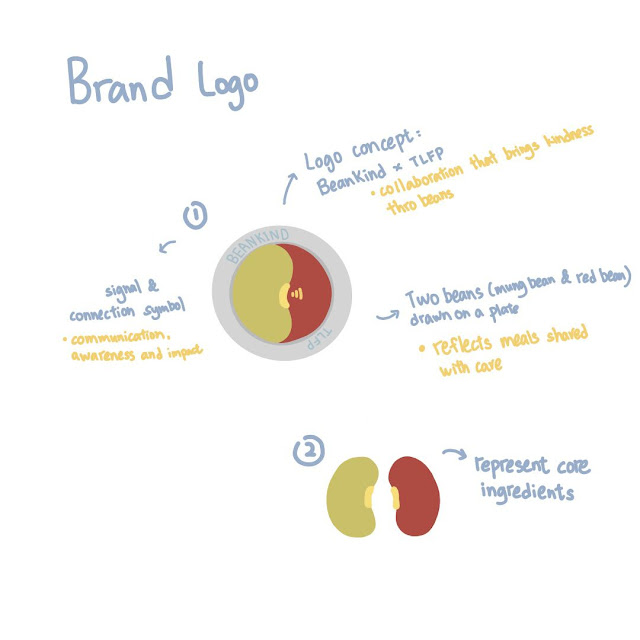Exercise 2: Ideation (Sylvia Wong Qian Rou 0138636)
Creating concept and product mindmaps helped me understand how a simple idea, such as “beans,” can represent
much more than just food. Through research and brainstorming, I learned to
connect creative inspiration from the movie Ratatouille with real-world issues
like food waste and hunger. By building the concept around “BeanKind,” I discovered
how storytelling and design can raise awareness for The Lost Food Project’s
mission in a meaningful way.
Creating the product mind maps
also showed me the importance of thinking through every detail. This process
taught me how to merge creativity with purpose and that even small ideas like
beans can make a big impact when combined with kindness, sustainability and
action.
During the mind map process, I
had trouble connecting my fun product idea to The Lost Food Project’s mission.
At first, I didn’t know how beans could represent food waste awareness. I
solved this by using Ratatouille as my inspiration and created the
concept “BeanKind” to show that small, simple ingredients can make a big
impact. Naming the products was also difficult, but after brainstorming, I
chose “BeanKind Brew” and “BeanCycle Bites,” which fit the message of sustainability.
Lastly, I made the products more realistic by reusing leftover bean pulp for
the snacks, reducing waste. This process taught me how to turn creative ideas
into something meaningful.
Bird, B. (Director). (2007). Ratatouille [Film]. Pixar Animation Studios; Walt Disney Pictures.
DKSH. (2023, February 13). DKSH and TLFP provide 83,000 meals to Malaysia’s urban poor. https://www.dksh.com/my-en/home/media/news?id=tag:xml.newsbox.ch,2023-02- 13:1121.english
Food and Agriculture Organization of the United Nations. (2013). Food
wastage footprint: Impacts on natural resources. Retrieved from https://www.fao.org/3/i3347e/i3347e.pdf
Global Giving. (2024, February 13). Small things that make a big difference in the world. https://www.globalgiving.org/learn/small-things-that-make-a-big-difference-in-the-world/ globalgiving.org
Healthline. (2018, December 13). Adzuki beans: Nutrition, benefits and
how to cook them. https://www.healthline.com/nutrition/adzuki-beans
netmeds.com+2healthline.com+2allrecipes.com+2
Healthline. (2023). Mung beans: Nutrition, benefits, and how to cook
them. https://www.healthline.com/nutrition/mung-beans
The Lost Food Project. (n.d.-b). About us. Retrieved June 25, 2025, from https://www.thelostfoodproject.org/about-us
United Nations Environment Programme. (n.d.). Goal 2: Zero hunger.
Retrieved June 25, 2025, from https://www.unep.org/topics/sustainable-development-goals/why-do-sustainable- development- goals-matter/goal-2
Vocal Media. (2025, June 15). How to save the planet: everyday actions
and inspiring eco projects. Retrieved from https://vocal.media/earth/how-to-save-the-planet-everyday-actions-and-inspiring-eco-projects
vocal.media








Comments
Post a Comment